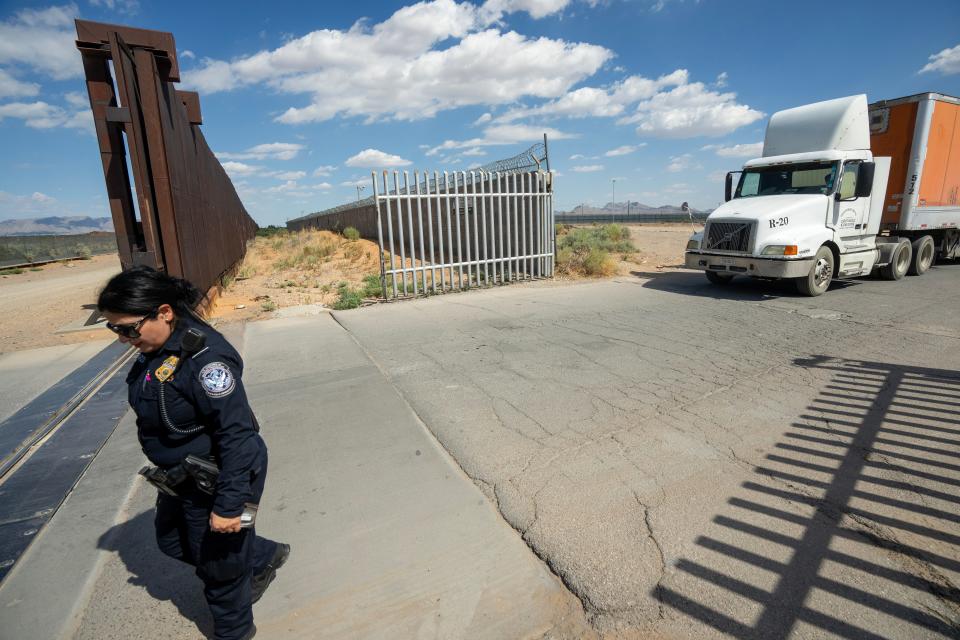Can a president just close the southern border? | Opinion
Q. Could the president just close the southern border?
A. While presidents do have significant authority concerning the operation of the border and the rules implemented concerning the treatment of immigrants, they are limited by both law and the U.S. Constitution. Indeed, the president’s powers are largely a product of the authority given to the office by Congress. In the past, presidents have, for a short time, stopped entry along the southern border. In 1963, the ports of entry were briefly closed in the aftermath of President Kennedy’s assassination. In 1985, the Reagan administration closed the border for a few days after the abduction of a federal agent in Mexico. Neither of these lasted long enough to face legal scrutiny.
Opinion | Solution is simple: Florida’s property insurance is in crisis.
Much of the power of the president comes from two statutes, 8 U.S.C. §§ 1182(f) and 1185(a)(1). Section 1182(f) allows the president, by proclamation, to suspend the entry of "any aliens or any class of aliens" deemed detrimental to U.S. interests for as long as necessary. Similarly, Section 1185(a)(1) permits the president to prescribe "reasonable rules, regulations, and orders" governing the entry of aliens.
Relying primarily on Section 1182(f), the Trump administration issued a series of policies aimed at categorically restricting entry for certain immigrant, nonimmigrant and asylum-seeker populations at the southern border. This included the travel ban upheld by the Supreme Court in Trump v. Hawaii (2018), in which the Court embraced a broad view of the president's discretion under the law. However, the Court relied on national security justifications and only addressed people who had not yet arrived in the United States.

More on immigration: Florida leaders should back bipartisan immigration plan | EDITORIAL
While there is substantial discretion vested in the president, there are limitations. 8 U.S.C. § 1158 provides that any alien “who arrives in the United States” may apply for asylum and present claims based on enumerated specific admissibility criteria. However, the precise boundaries remain ill-defined, due to conflicting court rulings on the scope of presidential power under Section 1182(f), especially regarding restrictions based on domestic policy rationales versus national security justifications, which are subject to greater judicial deference.
The Trump administration also used Section 1182(f) authority to bar immigrants lacking health insurance. It temporarily blocked certain nonimmigrant worker categories - moves rejected by some lower courts as impermissible attempts to rewrite immigration policies unilaterally. Some additional attempts to use this law to deny asylum claims at the southern border were rejected by lower courts. Courts have ruled that the president cannot override statutorily enacted asylum protections and refugee treaty obligations.
More on immigration: Poll on immigration clashes with political narratives as 2024 campaign rhetoric heats up
Until Congress clarifies the rules and scope of presidential authority at the border, there will likely be a fair amount of legal debate and litigation every time the president issues an order. If the president acts outside of statutory authority, it could enable future administrations to effectively nullify asylum protections, deviate from refugee treaty commitments, or issue entry bans motivated by politics under the guise of national security.
Striking the proper balance that preserves core executive responsibilities over border security while upholding constitutional constraints and respecting legislative policy roles will be an ongoing challenge for the courts and the political branches until new laws are passed.

Kevin Wagner is a noted constitutional scholar and political science professor at Florida Atlantic University. The answers provided do not necessarily represent the views of the university. If you have a question about how American government and politics work, email him at kwagne15@fau.edu or reach him on Twitter/X @kevinwagnerphd.
This article originally appeared on Palm Beach Post: Immigration: Can Biden close southern border, lock out immigrants?

